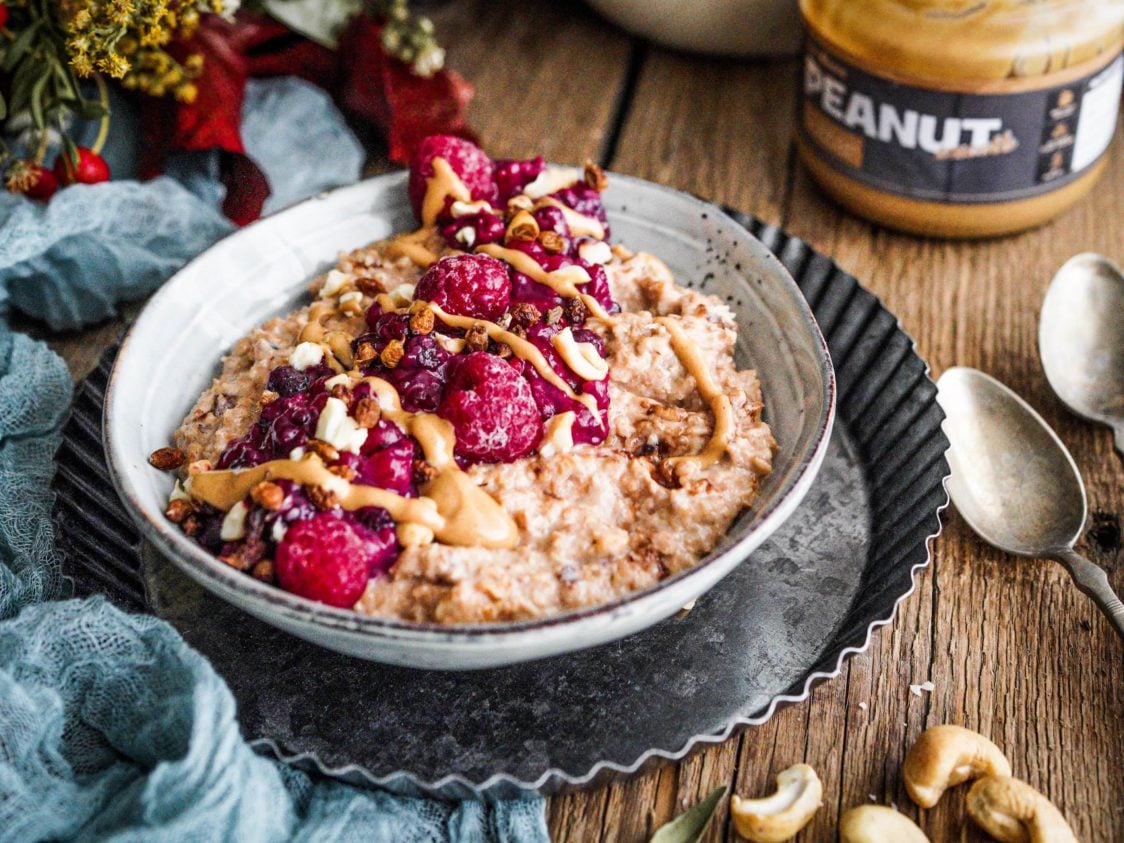Table of Contents
In the field of nutrition and a balanced diet, there has long been a dilemma as to whether breakfast is really the most important meal of the day.Some studies claim that breakfast is the basis for energy replenishment after sleep, while others rely on facts proving their inefficiency in weight loss. In addition, some experts argue that the importance of breakfast is related to the growing market for breakfast mixes, flakes and cereals.Companies that offer such products declare that breakfast is the basis of the day and without them you should not even go out on the street. So, what is the reality? Is breakfast a necessary start of the day or just a simple marketing trick? [1]

Breakfast and weight loss
The most common benefit associated with eating breakfast is its reputed beneficial effect on weight loss. On the contrary, their omission is said to have negative effects on body weight and can cause obesity. In reality, it is not so much about whether you miss breakfast or not, the important thing is what you choose as your first meal of the day. It makes a difference whether you replenish your energy in the morning with a balanced breakfast, or fatty or sweet dishes. [1] [2] [3]

However, let’s look at what renowned studies have said about these claims. One such study, which analyzed the health data of 50,000 people over seven years, focused on how is size of the breakfast portion related to BMI levels. The researchers found that those who made breakfast the most hearty meal of the day had a lower body mass index (BMI) than those who ate more hearty lunch or dinner. They justified this by saying that breakfast helps to increase the feeling of fullness during the day, which significantly reduces the subsequent daily calorie intake. Another study confirmed this effect – people who skipped breakfast or enjoyed an unsatisfactory portion of breakfast tended to overeat at lunch and dinner. [1] [10]
In addition, they found out that heavier breakfasts help improve the quality of the diet, as breakfast meals tend to contain more nutrients and fiber. Of course, it all depends on what you choose for breakfast. If it is heavy and fatty bacon or sweet croissants, the effect may be the opposite. However, if you reach for hearty, nutrient-filled flakes or eggs, you can achieve several benefits. Having regular healthy meals for breakfast will help improve your insulin sensitivity and reduce the risk of developing diabetes. However, such studies still need to be taken easy – many times they do not take into account the individual lifestyle of the participants or the choice of foods that play an important role in weight control. [10]

For example, a team of scientists from Monash University in Melbourne, Australia, analyzed 13 randomized controlled trials in the field of having breakfast. A meta-analysis of the results found that participants who ate breakfast had a higher total daily energy intake than participants who did not eat breakfast. Thus, on the contrary, this study suggests that adding breakfast may not be a good weight loss strategy. However, further high-quality randomized controlled trials are needed to examine the role of breakfast in weight control. The only way to find out if breakfast plays a positive role in weight loss is to examine the choice of specific foods and their effects. [11]
Marion Nestle, PhD, a professor of nutrition, food studies and public health at the University of New York, points out that many studies that prove the positives of breakfast were funded by Cereal Partners Worldwide, which is affiliated with Nestlé and General Mills. That is, companies that produce breakfast cereals and benefit from their sale. [12]
Conclusion
Breakfast can really help you lose weight, but it’s not because of their timing. It’s more about what foods you choose for breakfast. If it is a hearty breakfast with a balanced ratio of carbohydrates, proteins and fats, you can achieve a sufficient feeling of fullness, which will result in less overeating during the day. However, if you skip breakfast, you do not have to worry about obesity. It is always necessary to monitor your total energy intake during the day. That is what is responsible for your weight gain or loss. Don’t focus on when you eat, but what you eat.

Breakfast and energy level
The source of energy in the body is glucose, which we obtain from carbohydrates. It is then broken down into glycogen in the body and stored as energy and fat. Most glycogen is stored in the liver and to a lesser extent in the muscles. As we cannot build up a long-term supply of glycogen, we must take it regularly, always after it has been depleted. This usually occurs after exercise or any other physical activity, during fasting or during sleep. [8]

Overnight, the liver breaks down glucose and releases it into the bloodstream as glycogen to keep blood sugar levels stable. During sleep, the liver ensures that your brain has enough energy to function. Therefore, when you wake up in the morning, your glycogen levels in your body are low and should be replenished immediately. As soon as all the energy is consumed, the body begins to break down fatty acids instead of glycogen.However, in the absence of carbohydrates, fatty acids are only partially oxidized, which can significantly reduce your energy levels. This is the main reason why you should supply your stomach after waking-up with foods, especially rich in healthy carbohydrates and fiber, and avoid heavy fatty foods. [1] [3] [8]
In one study, several dozen participants were divided into two groups, one consuming a carbohydrate and fiber-rich breakfast in the morning and the other not eating breakfast at all. Subjects were then monitored for several hours. The study concluded that those who did not have breakfast performed worse on memory tests and felt more exhausted than those who had breakfast. Several studies support this hypothesis that routine skipping breakfast was associated with reduced physical activity, especially before lunch. [8]
Another randomized study looked at participants who ate breakfast for one week and missed it for another. It monitored their food intake using food diaries and energy expenditure was assessed using pedometers and heart rate monitors. For all participants, daily energy levels did not differbetween the two experimental weeks. The study showed that the total energy intake changed only minimally in 24 hours. However, it should be emphasized that participants consumed different types of food during the study; if they focused on only one specific energy-rich food, the results could differ more significantly. [13]
Therefore, another study focused on specific types of food consumed for breakfast and their impact on energy levels. Foods with a lower glycemic index (GI) and a higher protein content at breakfast have been found to be associated with higher energy levels. Based on this, researchers recommend that breakfasts have a low GI and a high protein content. [14]
Conclusion
Regular breakfast can affect the level of energy in our body. However, it is also true that there is a difference in what source you use to replenish your energy. If you choose sweet foods full of simple sugars or fructose for breakfast, your energy levels will be depleted very quickly. Conversely, if you focus on a balanced ratio of nutrients and foods with a low glycemic index, you may feel more vital in the morning.

Listen to your body
Still not sure if breakfast is the most important meal of the day? As studies differ in opinion and each provides irrefutable evidence, do not rely on them, but listen to your body. Ultimately, you must decide which eating habit is best for you. Whether you decide to have breakfast or skip breakfast from your menu, you should not forget about your total daily energy intake. You can easily find it out using online calculators, but on average it ranges from 2000 to 2500 calories, depending on gender, age and physical activity. [1] [2] [3]

If you fulfill your energy intake, you do not have to worry about gaining weight. Conversely, if you want to lose weight, you should focus on the caloric deficit, during which your daily expenditure must be higher than your income. At the same time, you should make sure that your daily diet contains a sufficient amount of important nutrients – carbohydrates, proteins, fats and fiber. Only in this way will you achieve all your goals in the area of diet and weight loss.
Ideas for healthy breakfast
If you’re worried about which foods are best for a healthy and balanced breakfast, here are some tips: [9]
- Choose whole-grain foods – whole-grain cereals and bread with high-fiber content can help maintain optimal blood sugar levels and prevent a drop in energy in the morning. You can choose from a wide range of cereals, flakes or cereals and muesli, or prepare hearty porridges. However, when choosing cereals, take a good look at the nutritional table and composition. If they contain the following basic information, they are just right for you: 5 g or more of fiber per serving, less than 300 mg of sodium per serving, less than 5 g of sugar per serving, the cereal is listed as the first item in the list of ingredients.
- Choose foods with a higher protein content – a great choice is Greek yogurt, which contains more protein than regular yogurt. You can also reach for eggs or various types of nuts and nut butters, which are also full of healthy fats.
- Smoothie as a great breakfast choice – they are quick, easy to prepare and with a selection of the right foods they also serve as an excellent source of nutrients. Combine fruits, juice, cereals or other ingredients, mix them and your refreshing breakfast is ready. For inspiration, see our list of the best smoothie recipes for a healthy breakfast.
You might be interested in these products:

For even more inspiration, check out our article on 9 breakfast tips that you can prepare in advance.
We believe that our article on whether breakfast is really the most important meal of the day answered all your questions. Do you belong to people who don’t have breakfast or to those who can’t imagine starting their day differently? Share your experiences in the comments, and don’t forget to share our article.
[1] Charles Spence - Breakfast: The most important meal of the day? - https://www.sciencedirect.com/science/article/pii/S1878450X17300045
[2] Jessica Brown - Is breakfast really the most important meal of the day? - https://www.bbc.com/future/article/20181126-is-breakfast-good-for-your-health
[3] Rita Rubin - Is Breakfast Really Your Most Important Meal? - https://www.webmd.com/diet/news/20140902/breakfast-importance#1
[4] Katherine Zeratsky, R.D., L.D. - Does eating a healthy breakfast help control weight? - https://www.mayoclinic.org/healthy-lifestyle/weight-loss/expert-answers/food-and-nutrition/faq-20058449
[5] Kathleen M. Zelman, MPH, RD, LD - Eat Breakfast, Lose Weight - https://www.webmd.com/food-recipes/features/eat-breakfast-lose-weight#1
[6] Camille Noe Pagán - Can Breakfast Help You Lose Weight? - https://www.webmd.com/diet/features/breakfast-lose-weight#1
[7] Breakfast: Is It the Most Important Meal? - https://www.webmd.com/food-recipes/breakfast-lose-weight#1
[8] Breakfast – https://www.betterhealth.vic.gov.au/health/healthyliving/breakfast
[9] 4 ways to boost your energy naturally with breakfast - https://www.health.harvard.edu/staying-healthy/4-ways-to-boost-your-energy-naturally-with-breakfast
[10] Hana Kahleova, Jan Irene Lloren, Andrew Mashchak, Martin Hill, Gary E Fraser - Meal Frequency and Timing Are Associated with Changes in Body Mass Index in Adventist Health Study 2 – https://pubmed.ncbi.nlm.nih.gov/28701389/
[11] [Katherine Sievert, Sultana Monira Hussain, Matthew J Page, Yuanyuan Wang, Harrison J Hughes, Mary Malek, Flavia M Cicuttini - Effect of breakfast on weight and energy intake: systematic review and meta-analysis of randomised controlled trials – https://www.bmj.com/content/364/bmj.l42
[12] Marion Nestle - Viewpoint: Food-industry Funding of Food and Nutrition Research – https://www.foodpolitics.com/2016/01/viewpoint-food-industry-funding-of-food-and-nutrition-research/
[13] Does consuming breakfast influence activity levels? An experiment into the effect of breakfast consumption on eating habits and energy expenditure -https://www.researchgate.net/publication/51467554_Does_consuming_breakfast_influence_activity_levels_An_experiment_into_the_effect_of_breakfast_consumption_on_eating_habits_and_energy_expenditure
[14] Ikuko Kamada, Laurence Truman, Justine Bold and Denise Mortimore - The impact of breakfast in metabolic and digestive health – https://www.ncbi.nlm.nih.gov/pmc/articles/PMC4017414/


Add a comment